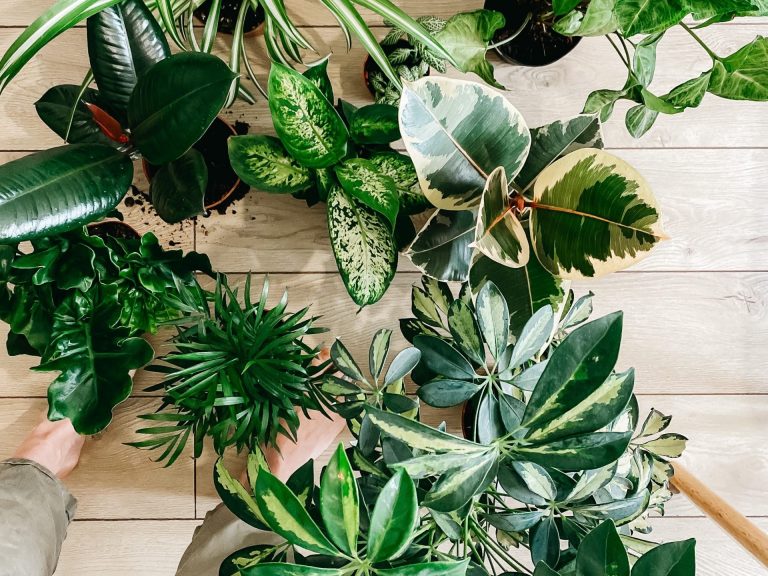How to Avoid Houseplant Care Mistakes: A Comprehensive Guide

Have you ever felt like you're a plant serial killer? You're not alone. Many of us have been there, watching our green friends wilt away despite our best intentions. But fear not! With a little knowledge and some careful attention, you can avoid common mistakes when caring for houseplants and become a proud plant parent. Let's dive in and turn your home into a thriving green oasis.
Understanding Your Plants: The First Step
Before we delve into the common mistakes, it's crucial to understand that not all plants are created equal. Some thrive in bright light, while others prefer shady corners. Some need frequent watering, while others can go weeks without a drop. So, the first step in avoiding houseplant care mistakes is to know your plants.
Common Mistakes When Caring for Houseplants
Overwatering: The Silent Killer
You might think that more water means more growth, but that's not the case with houseplants. Overwatering is one of the most common mistakes and can lead to root rot, which is often fatal for plants.
How to avoid it:
- Check the soil before watering. Stick your finger about an inch into the soil to feel for moisture. If it's dry, it's time to water.
- Use pots with drainage holes to prevent waterlogging.
- Consider the plant type. Succulents and cacti, for instance, need much less water than tropical plants.
Lighting: The Goldilocks Dilemma
Just like the porridge in the Goldilocks tale, lighting needs to be just right. Too much light can scorch leaves, while too little can stunt growth.
How to avoid it:
- Research your plant's light needs. Some plants thrive in direct sunlight, others prefer indirect light, and some can tolerate low light conditions.
- Observe your plant. If it's leaning towards the light, it's not getting enough. If the leaves are turning brown or yellow, it might be getting too much.
- Rotate your plants regularly to ensure all sides get equal light.

Humidity: The Forgotten Factor
Many houseplants originate from humid tropical environments. If your home is too dry, your plants might suffer.
How to avoid it:
- Group your plants together to create a humid microenvironment.
- Use a humidity tray filled with pebbles and water. Place your plant pot on top, ensuring it's not sitting in water.
- Mist your plants regularly, especially during winter when indoor air tends to be drier.
Fertilization: Food for Thought
Plants need nutrients to grow, but too much fertilizer can burn their roots. On the other hand, too little can lead to slow growth and yellowing leaves.
How to avoid it:
- Use a balanced, water-soluble houseplant fertilizer.
- Dilute fertilizer to half the recommended strength to avoid overfeeding.
- Fertilize during the growing season, usually spring and summer. Most plants don't need fertilizer during winter.
Repotting: The Right Time, The Right Way
Repotting is necessary when your plant outgrows its pot, but doing it too often or at the wrong time can stress your plant.
How to avoid it:
- Repot in the spring, when plants are actively growing.
- Choose a pot that's only slightly larger than the current one. Too much space can lead to overwatering and root rot.
- Be gentle when repotting to avoid damaging roots.

Additional Resources
For more detailed information, check out these authoritative resources:
- Royal Horticultural Society: A wealth of knowledge on all things plants.
- University of Maryland Extension: Practical and research-based plant care advice.
Conclusion: Embrace the Learning Process
Caring for houseplants is a learning process. Don't be disheartened if you make mistakes—we all do. The key is to learn from them and try again. Remember, every plant is unique, and understanding their individual needs is the secret to successful plant care.
So, are you ready to turn your home into a green sanctuary? Grab your watering can, and let's grow together!
FAQs
How often should I water my houseplants?
- There's no one-size-fits-all answer. It depends on the plant type, pot size, and environmental conditions. Always check the soil before watering.
What if I forget to water my plants?
- Most plants can tolerate some neglect. If your plant is wilting, give it a good soak, and it should perk up. However, consistent underwatering can lead to stunted growth and crispy leaves.
Can I use tap water for my plants?
- Tap water is generally fine, but if your water is heavily chlorinated or has a high mineral content, consider using filtered water or rainwater.
Why are my plant's leaves turning yellow?
- Yellowing leaves can indicate overwatering, underwatering, too much light, not enough light, or a nutrient deficiency. Research your plant's specific needs to diagnose the problem.
How do I know when to repot my plant?
- If your plant is root-bound (roots circling the bottom of the pot), growing slowly, or drying out quickly, it might be time to repot.
Happy plant parenting! Remember, every expert was once a beginner.
0 Response to "How to Avoid Houseplant Care Mistakes: A Comprehensive Guide"
Post a Comment